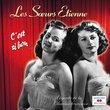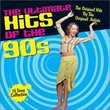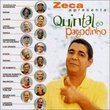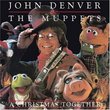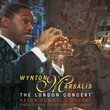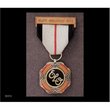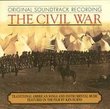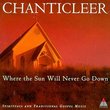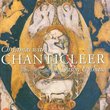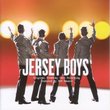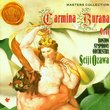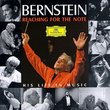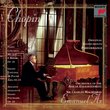| All Artists: Jacques Offenbach, Hector Berlioz, Arrigo Boito, Giacomo Meyerbeer, Charles Gounod, Igor Stravinsky, Julius Rudel, Munchner Rundfunk Orchester, Samuel Ramey Title: Samuel Ramey - A Date with the Devil Members Wishing: 0 Total Copies: 0 Label: Naxos Original Release Date: 1/1/2002 Re-Release Date: 7/16/2002 Genre: Classical Style: Opera & Classical Vocal Number of Discs: 1 SwapaCD Credits: 1 UPC: 747313535521 |
Search - Jacques Offenbach, Hector Berlioz, Arrigo Boito :: Samuel Ramey - A Date with the Devil
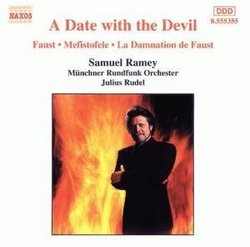 | Jacques Offenbach, Hector Berlioz, Arrigo Boito Samuel Ramey - A Date with the Devil Genre: Classical
It's curious that Samuel Ramey has made such a specialty of diabolical roles, because his voice--although pure bass--has never had the jet-black timbre of a John Tomlinson or the threatening muscular attack of a Bryn Terfe... more » |
Larger Image |
CD DetailsSynopsis
Amazon.com It's curious that Samuel Ramey has made such a specialty of diabolical roles, because his voice--although pure bass--has never had the jet-black timbre of a John Tomlinson or the threatening muscular attack of a Bryn Terfel. Indeed, it seems most comfortable in lighter repertory: Rossini, Mozart, anything that calls for grace and flexibility. But he has learned to slip a note of menace into the most elegantly well-turned phrase. His devils are urbane, sophisticated: evil in a suit and tie. And for the past six years, he's turned a rather chic collection of them into a recital program that has toured the world. This CD was recorded en route in Munich (it preserves an isolated fragment of audience applause, presumably to let you know). And here they all are: the Berlioz, Gounod, and Boito takes on Faust, together with Meyerbeer's Robert le Diable, Stravinsky's Rake, and (stretching the definition of operatic devilry) Offenbach's Dapertutto (Les Contes d'Hoffmann). This recording was made when Ramey was approaching 59 and starting to show his age. The voice is graying at the edges and is sometimes noticeably thin of texture, with a vibrato that rocks the poise of his slower, more lyrical numbers. But there's still plenty of life in the singing and an energy that never loses focus or coarsens into bluster. For that alone, he's still worth hearing. --Michael White Similar CDs
Similarly Requested CDs
|
CD ReviewsAlmost extinct. John bloggs | wellington, new zealand | 05/31/2003 (5 out of 5 stars) "Samuel Ramey is unique in the recorded history of opera. He is a bass- a true bass at that- with an intoxicatingly beautiful and resonant voice, possessing a phenomenal techniique with which he is able to lift his voice far above the limitations imposed on it by nature. He has sung Scarpia, one of the most demanding baritone roles in the italian repetoire- convincingly, and with an ease and elegance that any verdian baritone would envy. In fact, for a comparable technique among lower voices, one would have to go back to the great "virtuoso" basses of the early-middle of the 19th century such as tamburini, supposedly the greatest vocal genius among all operatic basses. No recordings exist of this extinct breed of singers who could challenge the castrati in the practise of florid singing and bel canto, but there are many detailed descriptions of their performances, vocal sound, and technique; as well as musical transcriptions of exactly what they sung. Samuel Ramey is undoubtdedly such a singer. His combination of warmth, elegance, and sheer technical brilliance are unmatched among all basses in the history of recorded opera. His style has occasionaly been labelled as bland, pehaps by people who want to hear Chaliapin instead. But as great as the Russian bass was, Ramey posseses an altogether different mentality and represents a different method of schooling- indeed so unique among our time is his style that it is not difficult to understand why people sometimes don't "identify" with his characterisations. We all have ideas of how a certain piece should be performed after all. By way of comparison, Giuseppe DeLuca was one of the great singers in the early years of the last century. He was a baritone, a great stylist and interpreter in the old belcanto tradition. In many ways his basic approach to singing resembled Rameys: poised, elegant, with an emphasis on restraint and a sort of "inner intensity" in his legato. He is one of the true geniuses among all baritones on record, and yet if one was to listen to him with inflexible modern ears his recordings may perhaps sound strange, maybe even dull and lacking in emotional fireworks. He is simply a different TYPE of singer than we generally hear nowadays, and so is Samuel Ramey. So how does he sound on these recordings at the age of 60? His vibrato is noticably wider to be sure- so was Joan Sutherlands(among many) at that age, and as in Sutherlands case, it is more noticable on the longer, more legato passages. Be that as it may, his voice is larger, darker, and heavier because of his age, and with a tone as poised and resonant as rameys, a widening vibrato is both part and parcel. Do not mistake it for a wobble of the kind callas or carreras possesed- that is a result of forcing the voice, and Ramey never forces- wide it may be, but his vibrato is even and controlled. His interpretations of all these characters (particularly the three mephistopheles' in Boito, Berlioz and gounod's operas) have gained tremendously over the years and have reached a peak on this cd. Added to that is the greater maturity of his voice, which raises these performances to a superlative level. In its best moments "A Date with the Devil" shows him to be an unparalleled virtuoso among basses, and still in possesion of the greatest basso-cantante of our time. The very well played and recorded orchestra led by Rudel, with whom Ramey has worked in the past, is a additional bonus. In conclusion, Samuel Ramey may never eclipse memories of recordings from this repetoire by such singers as Boris Christoff, and George London, but certainly his intention is not to do so. As all of the very greatest singers have done, he is, with his highly unique style, carving out his own significant niche in operatic history." A Handsome Devil Of A Baritone Rudy Avila | Lennox, Ca United States | 11/09/2005 (5 out of 5 stars) "This recording finds the world famous bass Samuel Ramey at age 59, singing a collection of the "bass villain" repertory he gained fame for interpreting. His voice has darkened considerably and shows signs of aging, but still delivers. On this disc: Berlioz's operatic oratorio "La Damnation de Faust" is another account of the Goethe tale of Faust. Charles Gounod's opera is the more famous account. Samuel Ramey's pure bass voice was tailor-made for the role of the Devil. "Un Puce Gentile" is a more lyrical aria while "Devant La Maison" in which the Devil calls his spirits to bewitch Marguerite, is a coloratura, lively aria. Samuel Ramey once again sigs a Devil in the Meyerbeer grand opera Robert Le Diable, a masterpiece in its time but now an opera that has long fallen on the wayside. His French diction is superb, and his bel canto voice (and it is a bel canto voice) sounds golden, full, dark and rich. It is actually a good thing that he is 59 and singing roles that sound old, sinister and lecherous. Devils are normally regarded as old creatures and somehow Samuel Ramey makes them sound seductive and even beautiful to hear. He has a healing quality to his voice. Take for instance the dramatic-lyric Italian manner in which he sings Ecco Il Mondo from Arrigo Boito's Mefistofele. Mefistofele is a grand vehicle for the bass in the role of the Devil but again this opera was more popular in the old days. George London sang Mefistofele opposite Renata Tebaldi in an old 50's recording and that one is the best interpretation of them all, with grand Italian opera taking on flights of fancy. There is also another fine recording with Norman Treigle of the New York City Opera (he was Ramey's mentor) back in the 60's. The aria "Shine Diamond, shine" of the villainous magician in Offenbach's Tales of Hoffman is a specialty of Ramey's. I saw him performing the role on stage and have heard his full-length recording of all four villains in Hoffman. He makes the villains appropriately edgy and electrifying and suffuses the portrayals with a kind of Broadway musical theatricality mixed with rich lyricism. This is a great recording of Samuel Ramey's but not his best. This does not find him in his prime. To discover how magnetic his voice can be one has to listen to his earlier recordings, particularly those of his bel canto operas - Rossini and Verdi in particular- like Verdi's Attila, in which he sings the role of Attila the Hun, or Rossini's Iago in Otello. His voice was actually superb when he was not singing the lead baritone roles and instead singing minor bass roles like Angelotti in Tosca in the 1978 recording with Montserrat Caballe and Jose Carreras. He has also sung a fine bass role in Massenet's Manon wich starred Beverly Sills. His Robert Le Diable with June Anderson on studio recording is also excellent. " Vecchio Ramey Mehmet Can El | Izmir, Turkey | 12/23/2003 (3 out of 5 stars) "I am so sorry to hear that Cd...because Ramey was my idol...He was the king of the opera world...He was the one who has the best technique....but this cd made me shocked...This old swinging voice....Arghhhh....
I think Everyone have to quit the job at the peak of their careers...I want to remember Ramey as the 1991 Mefistofele....not with this cd... beyond all these words Ramey is still Ramey if we don't count this CD...The old performances makes me forget about it... I hope this will be the last fault of him...this recording must be rated with 1 star but three stars are for the brightest star of the opera world..." |

 Track Listings (13) - Disc #1
Track Listings (13) - Disc #1